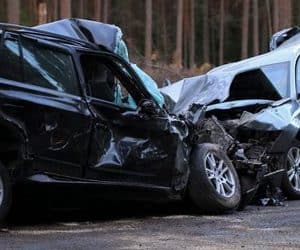Introduction
Car insurance is an essential aspect of owning a vehicle. It is a legal requirement in most states, and it protects you financially in the event of an accident. However, choosing the right car insurance policy can be overwhelming, with countless options and confusing terms. In this article, we will cover everything you need to know about car insurance Q, from what it covers and how to choose the right policy to common myths and frequently asked questions.
What is Car Insurance Q?
Car insurance Q is a term commonly used to refer to car insurance policies that provide coverage for damages caused by accidents. It includes liability coverage, which covers damages and injuries you may cause to another person while driving, and collision coverage, which covers damages to your own vehicle in the event of an accident.
There are also additional coverage options available, such as comprehensive coverage, which covers damages to your car caused by events such as theft, vandalism, or natural disasters, and uninsured/underinsured motorist coverage, which covers damages caused by drivers who have no insurance or not enough insurance to cover the damages.
When choosing a car insurance policy, it’s essential to understand what coverage you need and what each type of coverage entails.
Liability Coverage
Liability coverage is a legal requirement in most states. It covers the damages and injuries you may cause to another person while driving. This includes bodily injury liability, which covers the medical expenses, lost wages, and other damages suffered by the other party, and property damage liability, which covers damages to the other party’s property, such as their car or fence.
The amount of liability coverage you need depends on your state’s requirements and your assets. If you have a higher net worth, you may want to consider purchasing more liability coverage to protect your assets in the event of a lawsuit.
Collision Coverage
Collision coverage covers damages to your car in the event of an accident, regardless of fault. It includes collisions with other vehicles, objects, or even animals.
Collision coverage is not required by law, but it is usually necessary if you have a financed or leased vehicle.
Comprehensive Coverage
Comprehensive coverage is an optional coverage that covers damages to your car caused by events such as theft, vandalism, or natural disasters.
If you have a newer car or a car with a high value, comprehensive coverage may be worth considering.
Uninsured/Underinsured Motorist Coverage
Uninsured/underinsured motorist coverage covers damages caused by drivers who have no insurance or not enough insurance to cover the damages.
If you are involved in an accident with an uninsured or underinsured driver, this coverage can help cover the damages to your car and your medical expenses.
Personal Injury Protection (PIP)
Personal injury protection (PIP) is a type of coverage that pays for your medical expenses and lost wages in the event of an accident, regardless of who is at fault.
PIP is required in some states and optional in others. If you have good health insurance, you may not need PIP coverage. However, if you do not have health insurance, PIP can provide valuable coverage.
Rental Car Coverage
Rental car coverage is an optional coverage that pays for the cost of renting a car if your car is in the repair shop due to a covered accident.
If you rely on your car and cannot afford to be without it for an extended period, rental car coverage can be a good option.
How to Choose the Right Car Insurance Policy
Choosing the right car insurance policy can be overwhelming, but it’s essential to ensure you have the coverage you need. Here are some tips for choosing the right car insurance policy:
1. Know Your Needs
Before you start shopping for car insurance, it’s important to know your needs. Consider factors such as your driving habits, the value of your car, and your assets.
For example, if you have a newer car or a car with a high value, you may want to consider comprehensive coverage to protect your investment. If you have a high net worth, you may want to purchase more liability coverage to protect your assets in the event of a lawsuit.
2. Compare Quotes
Once you know your needs, it’s time to start shopping for car insurance. It’s a good idea to get quotes from multiple insurance companies to ensure you get the best coverage at the best price.
When comparing quotes, be sure to compare apples to apples. Make sure each quote includes the same types and amounts of coverage so you can accurately compare prices.
3. Consider Discounts
Many insurance companies offer discounts that can help you save money on your car insurance policy. Some common discounts include safe driving discounts, multi-car discounts, and bundling discounts (i.e., combining your car insurance with other types of insurance, such as home insurance).
Be sure to ask the insurance company about any discounts you may be eligible for.
4. Read the Fine Print
Before signing up for a car insurance policy, be sure to read the fine print. This includes the policy’s terms and conditions, as well as any exclusions or limitations.
Make sure you understand what is covered and what is not covered by the policy, so you can make an informed decision.
Common Myths About Car Insurance Q
There are many myths and misconceptions about car insurance Q. Here are some common myths and the truth behind them:
Myth #1: Red cars cost more to insure
It’s a commonly held belief that red cars cost more to insure than other colors. However, this is a myth. The color of your car has no impact on your insurance premiums.
Myth #2: Your insurance rates will increase if you get a speeding ticket
While getting a speeding ticket is never a good thing, it does not necessarily mean your insurance rates will increase. Whether or not your rates increase depends on your driving record and the policies of your insurance company.
Myth #3: You don’t need car insurance if you have a good driving record
Having a good driving record is certainly a plus, but it does not mean you don’t need car insurance. Accidents can happen to anyone, even the safest drivers. Car insurance is designed to protect you financially in the event of an accident.
Frequently Asked Questions About Car Insurance Q
1. How much car insurance do I need?
The amount of car insurance you need depends on your state’s requirements and your individual needs. At a minimum, you will need liability coverage to cover damages and injuries you may cause to another person while driving. If you have a higher net worth, you may want to consider purchasing more liability coverage to protect your assets in the event of a lawsuit.
2. Is car insurance required by law?
Car insurance is a legal requirement in most states. The requirements vary by state, but at a minimum, you will need liability coverage to cover damages and injuries you may cause to another person while driving.
3. How can I lower my car insurance premiums?
There are several ways to lower your car insurance premiums, including:- Increasing your deductibles- Taking advantage of discounts- Maintaining a good driving record- Driving a car with safety features- Paying your premiums in full rather than monthly payments
4. What is the difference between collision and comprehensive coverage?
Collision coverage covers damages to your car in the event of an accident, regardless of fault. Comprehensive coverage covers damages to your car caused by events such as theft, vandalism, or natural disasters.
5. What is personal injury protection (PIP) coverage?
Personal injury protection (PIP) coverage is a type of coverage that pays for your medical expenses and lost wages in the event of an accident, regardless of who is at fault.
6. What is uninsured/underinsured motorist coverage?
Uninsured/underinsured motorist coverage covers damages caused by drivers who have no insurance or not enough insurance to cover the damages.
7. How often should I review my car insurance policy?
You should review your car insurance policy at least once a year to ensure you have the coverage you need. You should also review your policy if you have any significant life changes, such as getting married, buying a new car, or moving to a new state.
Conclusion
Car insurance Q is an essential aspect of owning a vehicle. It protects you financially in the event of an accident and is a legal requirement in most states. When choosing a car insurance policy, it’s essential to understand what coverage you need and what each type of coverage entails.
Remember to compare quotes, consider discounts, read the fine print, and review your policy regularly to ensure you have the coverage you need at a price you can afford.
If you have any questions or need help choosing the right car insurance policy, don’t hesitate to contact a qualified insurance agent or broker.

 Interogator Blog teknologi gadget canggih terbaru
Interogator Blog teknologi gadget canggih terbaru

